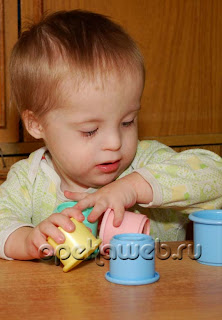Jacob does not seem to have changed much since his youth. He still plays favorites with his sons and grandsons, although he does seem to discriminate between them based on character traits rather than subjective affinity. With respect to his grandsons Ephraim and Menashe, he continues the tradition of favoring the younger over the elder: Kane vs. Abel, Ishmael vs. Isaac, Esau vs. Jacob, Rachel vs. Leah, Joseph vs. his brothers. He also repeats this in the blessings to his own children: Judah is favored over Leah's other sons, and Zebulun is favored over Issachar. This is a theme that has dominated Jacob's entire life, and it persists right to the end.
Joseph, on the other hand, has learned true humility and generosity. After the death of their father, the other brothers fear that Joseph may take vengeance upon them. Instead, he responds,



'Don't be afraid,' said Joseph to them. 'Shall I then take God's place?
Vayomer alehem Yosef al-tira'u ki hatachat Elohim ani.
You might have meant to do me harm [but] God made it come out good. [He made] it come out as it actually did, where the life of a great nation has been preserved.
Ve'atem chashavtem alay ra'ah Elohim chashavah letovah lema'an asoh kayom hazeh lehachayot am-rav.
Now don't worry. I will fully provide for you and your children.' He thus comforted them and tried to make up.
Ve'atah al-tira'u anochi achalkel etchem ve'et-tapchem vayenachem otam vayedaber al-libam.
Jacob and Joseph both express their dying wish to be buried in the land of their forefathers. Joseph fulfills his father's wish promptly, mourning him with "a very great and solemn lamentation". Jacob is embalmed and mourned in Egypt for 70 days before being taken with great ceremony to the Cave of the Patriarchs in Hebron.
Joseph, on the other hand, receives no such treatment. Instead, "...and he was embalmed and placed in a coffin in Egypt." Thus he was left until his descendants carry his remains back to Israel during the Exodus.
========
I am thinking of Joseph's words with respect to the recent Russian ban on American adoptions. It seems like a bad thing, but it can also be seen in the context of Russian reforms of its own child welfare system. At the same time, a proposed amendment to the ban may allow an exception for children with special needs, so that these may get more attention from potential adopters. Finally, this may create the pressure on adoption agencies and facilitators to address corruption and poor oversight, so that future adoptions are less likely to disrupt or result in child abuse/neglect (as can happen when parents are poorly prepared).
Praying for Ivan and Celine.
Praying for Wyatt.
Praying for Nathan.
And all the ones we know about and don't know about, who wait to be "fully provided for".






























